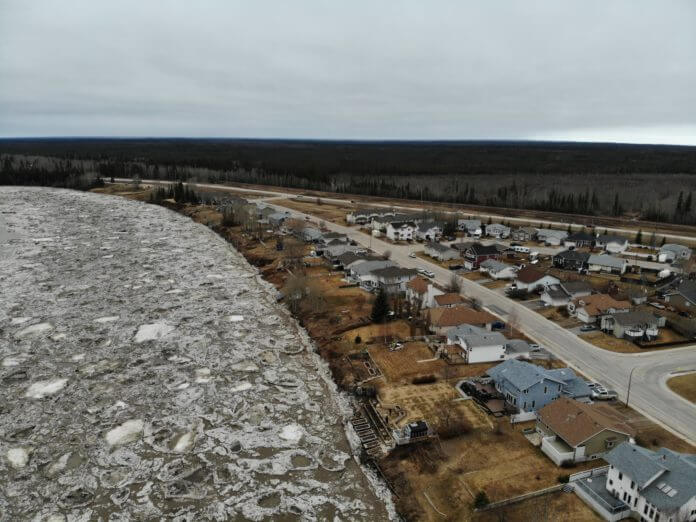Four boil water advisories have been declared in NWT communities in 2021 so far, the most in any single year since 2018.
According to the Department of Health and Social Services, most of those have been due to higher turbidity in the water — 24 out of 29. Higher turbidity is essentially dirty water, usually muddy water which gathers in the drinking water source and makes it harder for water treatment plants to clean the water.
In Fort Simpson and Hay River, higher turbidity happened because of high water levels leading to more run-off in the water, which had caused flooding in the communities.
Water levels on Great Slave Lake reached the highest level recorded since monitoring began in the 1930s this past summer. Researchers found that water levels on Great Slave Lake will not likely return to normal historical levels for an extended period of time.
Grace Lau-a, the Community Operations Director at Municipal and Community Affairs (MACA) says communities like Hay River are seeing more seasonal changes come spring time, like higher water levels.
“I think that it’s definitely the goal to make sure that communities have all the tools that they can have in place. But again, accidents, or mechanical failures will always impact water treatment,” she said.
MACA has a $30 million year budget for infrastructure, which is distributed to communities based on a variety of factors. Lau-a says some communities are free to spend the money how they choose. Some can spend it on larger projects, while some hold the funding over for bigger projects.
Lau-a said Hay River’s water treatment point is the most suspect to higher turbidity, because it is an older plant.
At a city council meeting while discussing the ongoing boil water advisory, senior administrative officer Glenn Smith, said while the current water treatment plant, which is over 40 years old, is almost certainly not the cause of the frequent boil water advisories in Hay River the past few months, there had been conversations about building a new water treatment plant.
The current water plant was built in 1986, but does not have coagulation and flocculation filters. These filters circulate chemicals which help treat the water, but these would take up more space than is available in the current facility.
“If we tried to retrofit, we’d have to deal with all the issues of the current building,” said Justin Hazenberg, an engineer with MACA. “You never really know what’s wrong with everything until you start taking it apart.”
Hay River town council did outline plans in September last year for a new water treatment plant, but that project will take several years.
Lau-a said she couldn’t predict whether it was possible to have no boil water advisories in the future.
“We need to be careful in saying that linking the boiled water, the recent boiled water advisories to any sort of funding adequacy,” she said.
“Certainly, there are some issues with our funding, because we obviously don’t have enough funding for every single service. But water certainly is a priority for everybody and safe drinking water as a priority.”
Aimee Detinger, a spokesperson for MACA said in an email that the department had made lots of progress since 2000, when several people died in Walkerton Ontario due to contaminated drinking water.
“Prior to 2000 many NWT communities had simple truck fill stations where only chlorine was used to disinfect water and there was no filtration which would remove dirt, particles and other health-impacting substances,” she said. “The last of our communities with this simple truck fill system commissioned their new water plant last fall.”




